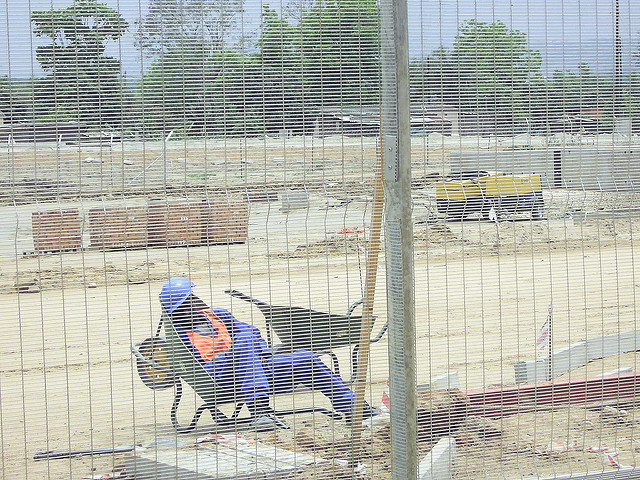- October 18, 2017
- Posted by: David Marshall
- Category: Business, Leadership, Management, Measurement

Company morale can have more dramatic rises and falls than a roller coaster. You’ll have your seasonal ebbs and flows, highs before a big product launch, lows after a major crisis or periods of poor performance, as well as the occasional holiday-related highs.
But you can also have pockets of high and low morale throughout the operation, independent of overall company trends. That’s where a group of people who work in close proximity are feeling great or bad, regardless of how the rest of the company might be feeling.
We could always deal with the lows, and we tried to keep the highs going as often as possible. But it was a little tougher to get those pockets up when they were down.
One way to keep company morale up was to just avoid any downtime. In some cases, it was just a matter of identifying people who were causing a particular problem and getting them to solve it (or solving it for them).
 For example, if someone is doing something wrong — sleeping at their desk, taking 2-hour lunches, not pulling their weight — the people around them know they’re doing something wrong. And although they won’t blow the whistle, they’ll resent the hell out of the fact that the other person can get away with it.
For example, if someone is doing something wrong — sleeping at their desk, taking 2-hour lunches, not pulling their weight — the people around them know they’re doing something wrong. And although they won’t blow the whistle, they’ll resent the hell out of the fact that the other person can get away with it.
So if management can fix the problem, morale will generally return to normal, and everyone will be happy or satisfied again.
By measuring everyone’s performance around the company, we were able to identify when people weren’t pulling their weight or getting their work done. We were able to identify problems and fix them quickly, before they had a chance to fester.
Sometimes Good Company Morale Comes From Being Heard
One way we confronted problems was just to speak up about them. Last week, I wrote about how I hated annual performance evaluations, because they would often let a problem fester for nearly a year before they were finally addressed.
But what I learned, and taught my management team, was that people generally prefer immediate and direct feedback. They tend to receive it more positively, even on a negative subject, than if the feedback is delayed and protracted.
That meant having conversations when problems started to crop up, even if it was slightly uncomfortable for both parties. That’s because an error might cost the company money. Why lose money for an entire year when you could stop it with a simple correction?
The other issue was the effect this waiting had on morale. If a problem persisted for a year, and people were pissed for a year, that could really drag morale down for that pocket of the company, and cause a lot of resentment.
To help people share their issues and air their grievances, I created a couple of company-wide forums where I would address the entire company and share our financial performance every month, good, bad, or indifferent. That way, there was nothing hidden and things never accumulated to be suddenly dropped like a bomb. Now, people may not have fully listened or absorbed what I had to say, but no one could say they were never informed. I also found that it brought a candor to my relationships with people that people working in a cubicle really didn’t see.
I was at Robroy for 21 years, which means I shared those results over 252 times. I also shared my thoughts on the state of the industry, the company, the environment, and any topics that would in one way shape or form affect everyone in the enterprise.
We also held a weekly forum that had an official sounding name — Vision Meetings — but everyone called Doughnuts With Dave. Every week, I would invite a mixed group of 10 people from all the disciplines in the business, and I would meet with them for an hour.
We would discuss any issues they may have had as individuals or as a group, and any observations they had. People tend to be more open in small groups than in large ones, so I was able to get more honest feedback. I could also stay in touch with the people in the company, and it gave everybody a broader understanding of what everybody else did in the building.
People may work in the same company for years and years together, but never know them, what they do, or why they do it. This was a way to broaden that knowledge base. It actually caused people to acknowledge and respect the contributions of their colleagues regardless of where they worked in the operation.
Good Company Morale Comes From Treating People Well
We also had outside events, like a very active wellness program which promulgated through the organization. We actually paid for it throughout the year, where everyone in the company could get annual blood work — check their cholesterol, A1C, PSA for men, and women over 35 would have mammograms. We also gave flu shots to anyone who wanted them.
I discovered that 30% of our associates didn’t have a primary care physician so they really weren’t conscious of their health or looking after themselves, so we made the checkups an annual event. And every month, nurses would come into the facilities and do blood pressure checks on everybody, just to make sure they were all in good health.
Finally, at Christmastime, we would have a big catered dinner and entertainment for the entire company, and I would present people with their service awards. We also used it as an occasion to recognize our sales reps as well as our vendors. Everybody would dress in their Sunday best and we would have a nice festive occasion with a catered sit-down meal and entertainment. In a small rural environment like East Texas, it was a big deal, and we made sure we made people feel special.
We also did things if people had to work too long without a break, we would do something special for them. Or anytime we hit a milestone of one sort or another, we would celebrate as a company.
For example, we would sometimes buy everybody lunch and have a mobile Burger King come to the facility and cook everybody’s lunch. Or on a really hot day, just for the sheer hell of it, we would buy everybody ice cream. And every Valentine’s Day, every woman in the organization got a red rose, and every man got a bar of candy.
We did all of these things because we wanted our associates and partners to know we valued them, we listened to them, and we cared about them (and their health, even on ice cream day). If we helped them be happy, company morale would be up, and they would be more willing to do their best work for us.
I’ve been a manufacturing executive, as well as a sales and marketing professional, for a few decades. Now I help companies turn around their own business, as well as boost their company morale. If you would like more information, please visit my website and connect with me on Twitter or LinkedIn.
Photo credit: World Cup – Shine 2010 (Flickr, Creative Commons 2.0)

